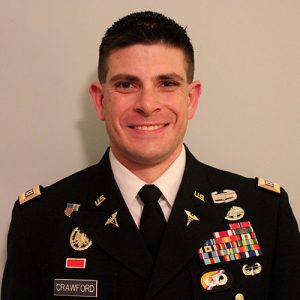2014 Award Recipients
Gaylord Anderson Leadership Award

Gretchen G. Musicant, ’78, MPH ’86, RN
Commissioner, Minneapolis Department of Health
See Gretchen’s Alumni Award video here
As Commissioner of the Minneapolis Health Department since 2005, Gretchen Musicant oversees and manages the Department’s mission of improving the quality of life for all people in the city by protecting the environment, preventing disease and injury, promoting healthy behaviors, and creating a city that is a healthy place to live, work and play. Before her appointment to Commisioner, Gretchen served as the Minneapolis Health Department’s director of public health initiatives, a role in which she demonstrated her ability to form lasting connections with community groups and organizations.
With innovative leadership skills, Gretchen played a vital role in the success and strategic direction of several programs including school-based clinic programs, Healthy Start, the New Families Centers and the TANF visiting program, all of which continue to help reduce infant mortality, provide immunization and insurance to new public school students, and improve youth development and family well-being in Minneapolis. One of the key features of Gretchen’s leadership is her reliance on partnerships to bring about change. She devotes considerable time and resources to making connections, developing partnerships across agencies and within communities.
Prior to working for the City, Gretchen honed substantial public policy experience serving as vice president of community health for the Minnesota Hospital Association and a government affairs specialist for the Minnesota Nurses Association.
As a former president of the SPH Alumni Society, Gretchen sits on the School’s public health administration and policy program advisory board and recently chaired the Minnesota Local Public Health Association. She received the 2007 Paul and Sheila Wellstone Public health Achievement Award from the MPHA and was designated one of 100 Distinguished Nursing Alumni from the School of Nursing, where she earned her bachelors of science.
Alumni Award of Merit

Jill M. DeBoer, ’84, MPH ’90
Deputy Director, University of Minnesota Center for Infectious Disease Research and Policy
See Jill’s Alumni Award video here
At the University of Minnesota, Jill DeBoer serves in two distinct roles: one as deputy director of the Center for Infectious Disease Research and Policy (CIDRAP) and the other as director of the Academic Health Center (AHC) Office of Emergency Response.
As deputy director of CIDRAP, Jill is responsible for short and long-term strategic plan development and implementation. As director of the Office of Emergency Response, Jill is responsible for developing and exercising plans and procedures related to health emergencies on campus, preparing AHC personnel and students for serving in public health response roles in the event of a large-scale emergency in the broader community. In addition to these roles, she serves on multiple emergency preparedness and response planning and advisory groups, serves as a consultant to the CDC and Department of Homeland Security, and is the founder of University of Minnesota Medical Reserve Corps, one of only a handful of units in the nation housed in an academic setting.
Prior to coming to the University, Jill worked for the Minnesota Department of Health (MDH) for 15 years where she was section chief of the AIDS/STD Prevention Services Section. Jill was a pioneer in building a primary prevention program for HIV infection, not just for Minnesota, but also as a model for the entire country, as she led the development and delivery of HIV risk reduction tools and programs, materials that remain in use today.

Robert W. Schwanke, ’52, MPH ’66
Retired professor, University of Minnesota School of Public Health
See Bob’s Alumni Award video here
Robert “Bob” Schwanke, a retired associate professor at the University of Minnesota School of Public Health, began his career in public health in 1955 following his service in the U. S. Army. He began as a health education specialist with the Minnesota Department of Health and then served as director of education at the Sister Elizabeth Kenny Institute and American Rehabilitation Foundation. Bob then joined the Minnesota Society for Crippled Children and Adults (now Courage Center) to launch a five-year statewide program to improve accessibility for the disabled. Directing the Architectural Barriers Education and Research Project, he wrote and guided the process to secure adoption of a law by the Minnesota Legislature in 1963, requiring all new and remodeled public buildings be fully accessible to the disabled and elderly.
In 1966, Bob joined the School of Public Health (SPH) as assistant professor and assistant dean, a relationship that would extend into over 25 years of service. He introduced numerous curriculum and course innovations, serving as director of interdisciplinary studies, alcohol and other drug counseling and the joint public health/social work degree program, which has served as a model for numerous subsequent interdisciplinary programs. He also designed courses tailored to student needs in their practice areas such as basic principles and concepts of public health, needs assessment and planning, change management, interdisciplinary team building, and human sexuality.
Throughout his career, Bob stayed active volunteering with the Minnesota Public Health Association (MPHA), serving as its president in 1969-70, prompting its reorganization. He continued to serve on numerous boards and advisory committees of community and state and local governments. Under Bob’s leadership, MPHA drafted legislation that has enabled minors to seek needed help and legally authorize professionals to provide services on a confidential basis. The Minor’s Consent to Health Services Act of 1971 became a model statute across the country. In 1976, he was awarded the Albert Justus Chesley Award for his outstanding contributions to the health of the people of Minnesota by the MPHA.
Since retiring from SPH in 1992, Bob has continued with ongoing volunteer activities with MPHA and St. Mary’s Episcopal Church, and has served as a consultant with various local and state organizations and mentored public health professionals. He and his wife, Phyllis, live in St. Paul.
Alumni Innovator Award

Ryan R. Armbruster, ’96, MHA ’98
Vice President, Innovation, UnitedHealth Group
See Ryan’s Alumni Award video here
Ryan Armbruster joined UnitedHealth Group in 2010, currently serving as vice president, Innovation Competency. His focus is building and managing enterprise-wide structures and processes that enhance organizational innovation, ranging from cultural initiatives to innovation strategy and the development and application of human-centered service design competencies. He created the UnitedHealth Group Human Centered Design Studio and currently leads this dynamic and growing enterprise-wide asset.
Ryan is a passionate advocate for innovation that employs human-centered design methods to meet the real needs of patients, health care providers and facilities and the health system itself. His pioneering experiences in service design and innovation—he previously served as creator and director of the SPARC Design lab at Mayo Clinic, a first of its kind comprehensive program and physical laboratory for developing new healthcare services and experiences for patients and care provides—have provided him with deep insights on how to build new organizational competencies, systems and approaches that deliver value, and he is a talented advisor, speaker and educator on this topic.
A two-time graduate of the University of Minnesota, Ryan also teaches both graduate and executive courses on service design and innovation for SPH.
Emerging Leader Award

Jason R. Crawford, DVM, MPH ’09
Captain, U.S. Army Veterinary Corps
Captain Jason R. Crawford received a direct commission into the United States Army through the Health Professions Scholarship Program in May 2009. Since then he has proven to be an emerging leader within the veterinary public health realm, providing innovative techniques and transforming the way veterinary operations are used in a combat environment.
Jason demonstrated his commitment to the discipline of preventive medicine by volunteering to serve within a US Army Veterinary Service Detachment. Immediately after the 2010 Haitian earthquake, he led a veterinary response team that quickly mobilized in support of the American rescues efforts. He established the first Army field diagnostic laboratory able to provide US Forces with instant feedback in support of theater food safety and local procurement issues. His team partnered with Christian Veterinary Ministries to continue the halted distribution of rabies vaccinations, as Haiti has one of the largest incidents of human rabies within the Caribbean. While deployed to Iraq, he was responsible for one of the largest animal public health mission and was integral in rabies prevention efforts and managing a threatened wild indigenous feline population. Jason was then selected for a position supporting the elite Special Operations Forces in Afghanistan where he was in charge of veterinary and agriculture development operations that empowered local nationals to produce more profitable and healthier livestock.
Jason’s awards are plentiful and include the Bronze Star Medal and Combat Medical Badge, rarely awarded to a veterinarian, as well as recently receiving the prestigious US Army Veterinary Services Exceptional Service Award in 2013, given to the best junior veterinarian in the US Army, and the BG Charles V.L. Elia Veterinary Excellence Medallion.
A native of New Mexico, Jason earned his BS in agriculture from New Mexico State University, a DVM from Colorado State University, a post-graduate certificate in veterinary homeland security from Purdue University, and is a Certified Public Health Professional (CPH). Jason and his wife, Christine Klippen, an emergency veterinarian, reside in eastern North Carolina.
